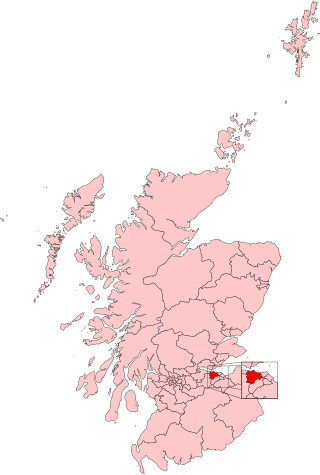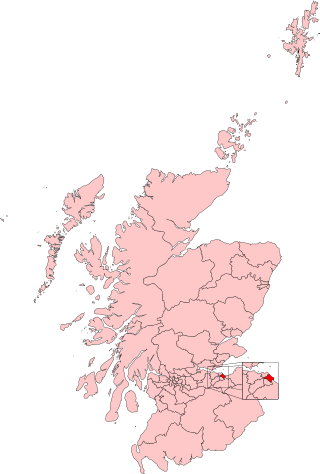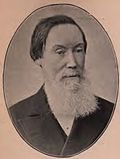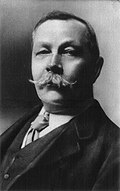Boundaries
1885–1918: The Municipal Wards of St. Giles, George Square, and St. Leonard, except so much as is comprised in the Edinburgh East Division (being the part to the north of a line drawn along the centres of East and West Richmond Streets).
1918–1950: The George Square, St. Giles' and St. Leonard's Municipal Wards of Edinburgh.
1950–1955: The George Square, Holyrood, and St Giles wards of the county of the city of Edinburgh.
1955–1974: The George Square, Holyrood, and St Giles wards of the county of the city of Edinburgh; and part of Gorgie-Dalry ward.
1974–1983: The George Square, Gorgie-Dalry, Holyrood, and St Giles wards of the county of the city of Edinburgh; and part of Merchiston ward.
1983–1997: The City of Edinburgh District electoral divisions of Dalry/Shandon, Haymarket/Tollcross, Murrayfield/Dean, New Town/Stockbridge, and St Giles/Holyrood.
1997–2005: The City of Edinburgh District electoral divisions of Dalry/Shandon, Fountainbridge/Tollcross, Moat/Stenhouse, Murrayfield/Dean, and St Giles/Holyrood.
The 1997–2005 boundaries covered a central portion of the City of Edinburgh council area, including Edinburgh Old Town, the West End, Holyrood and Murrayfield. The constituency was one of six covering the city council area.
At the 2005 general election, the constituency area was divided between Edinburgh East, Edinburgh North and Leith, Edinburgh South West and Edinburgh West. [1]

Edinburgh South is a constituency of the House of Commons of the UK Parliament created in 1885. The constituency has been held by Scottish Labour since 1987, being represented by Ian Murray since 2010. Murray was the only Labour MP in Scotland to retain his seat at the 2015 and 2019 general elections and this is one of only three seats never held by the Scottish National Party (SNP).

Edinburgh West is a burgh constituency of the House of Commons of the Parliament of the United Kingdom, first contested at the 1885 general election.

Edinburgh East is a burgh constituency of the House of Commons of the Parliament of the United Kingdom. It elects one Member of Parliament (MP) by the first past the post system of election.

Edinburgh South West is a Scottish constituency of the House of Commons of the Parliament of the United Kingdom, first used at the 2005 UK general election. It elects one Member of Parliament (MP) by the first past the post system of election. Since 2015, it has been represented by Joanna Cherry of the Scottish National Party.

Edinburgh Pentlands was a constituency of the House of Commons of the Parliament of the United Kingdom, first used in the general election of 1950, and abolished prior to the general election of 2005. It elected one Member of Parliament (MP) by the first past the post system of election.

Glasgow Central is a constituency of the House of Commons of the Parliament of the United Kingdom. In its current form, the constituency was first used at the 2005 general election, but there was also a Glasgow Central constituency that existed from 1885 to 1997. The sitting MP is Alison Thewliss of the Scottish National Party (SNP), who was first elected in May 2015. This constituency was also the seat of the former Conservative Prime Minister Bonar Law, who was the shortest-serving UK Prime Minister of the twentieth century.

Aberdeen South is a burgh constituency of the House of Commons of the Parliament of the United Kingdom and it elects one Member of Parliament (MP) by the first-past-the-post system of election.

Aberdeen North is a burgh constituency of the House of Commons of the Parliament of the United Kingdom and it elects one Member of Parliament (MP) by the first past the post system of election. It was first used in the 1885 general election, but has undergone various boundary changes since that date.

West Aberdeenshire and Kincardine is a county constituency of the House of Commons of the Parliament of the United Kingdom of Great Britain and Northern Ireland (Westminster), which elects one Member of Parliament (MP) by the first past the post system of election. It was first used in the 1997 general election, but has undergone boundary changes since that date. West Aberdeenshire and Kincardine was re-created as a parliamentary constituency in 1997, having previously existed as Kincardine and Western Aberdeenshire from 1918 to 1950.

East Renfrewshire is a constituency of the House of Commons, to the south of Glasgow, Scotland. It elects one Member of Parliament (MP) using the first-past-the-post system of voting.

Dumfriesshire was a county constituency represented in the House of Commons of Great Britain from 1708 to 1801 and in the House of Commons of the Parliament of the United Kingdom from 1801 until 2005. It was known as Dumfries from 1950.
Glasgow Cathcart was a burgh constituency represented in the House of Commons of the Parliament of the United Kingdom from 1918 until 2005, when it was replaced by the larger Glasgow South constituency.
Glasgow Govan was a parliamentary constituency in the Govan district of Glasgow. It was represented in the House of Commons of the Parliament of the United Kingdom for 120 years; from 1885 until 2005, returning one Member of Parliament (MP) elected by the first-past-the-post system.

Glasgow Shettleston was a burgh constituency represented in the House of Commons of the Parliament of the United Kingdom from 1918 until 2005. The Shettleston area's representation is now covered by Glasgow Central and Glasgow East.
Hamilton was a burgh constituency represented in the House of Commons of the Parliament of the United Kingdom from 1918 to 1997. It elected one Member of Parliament (MP) by the first past the post voting system.

Rutherglen was a burgh constituency represented in the House of Commons of the Parliament of the United Kingdom from 1918 until 2005. From 2005, most of the area is represented by Rutherglen and Hamilton West, while a small portion is now in Glasgow Central and Glasgow South.

West Renfrewshire was a county constituency of the House of Commons of the Parliament of the United Kingdom from 1885 to 1983 and again from 1997 until 2005. In 2005 the constituency was abolished and the area is now represented by Inverclyde, Paisley and Renfrewshire North and Paisley and Renfrewshire South.

Edinburgh Central is a burgh constituency of the Scottish Parliament (Holyrood) covering part of the council area of Edinburgh. It elects one Member of the Scottish Parliament (MSP) by the plurality method of election. It is also one of nine constituencies in the Lothian electoral region, which elects seven additional members, in addition to the nine constituency MSPs, to produce a form of proportional representation for the region as a whole.

Peckham was a borough constituency in South London which returned one Member of Parliament (MP) to the House of Commons of the Parliament of the United Kingdom. Elections were held using the first-past-the-post voting system.
This page is based on this
Wikipedia article Text is available under the
CC BY-SA 4.0 license; additional terms may apply.
Images, videos and audio are available under their respective licenses.






















